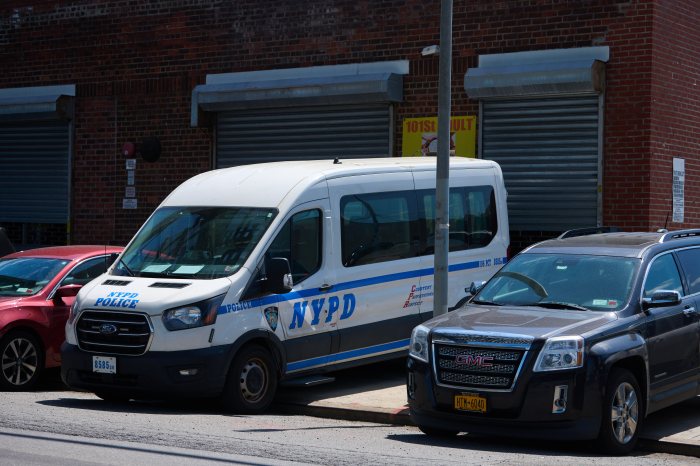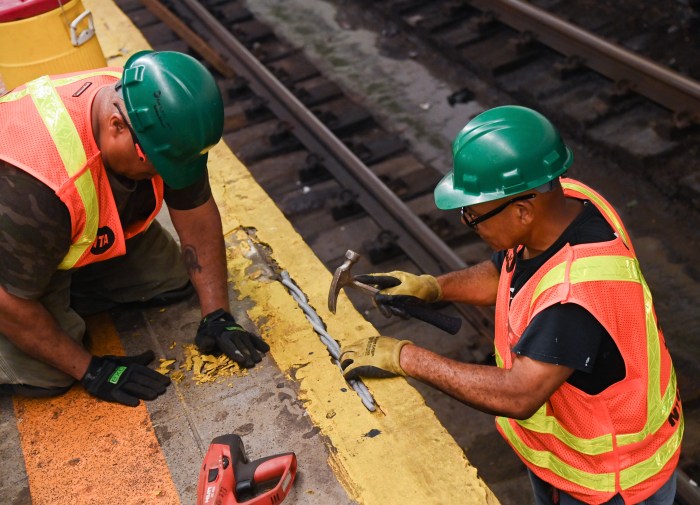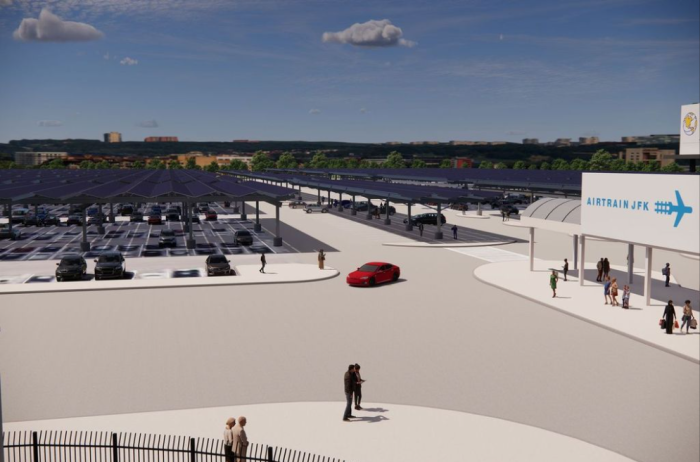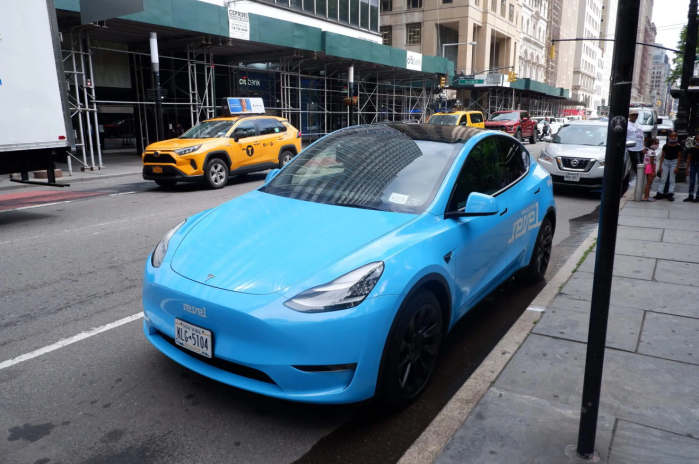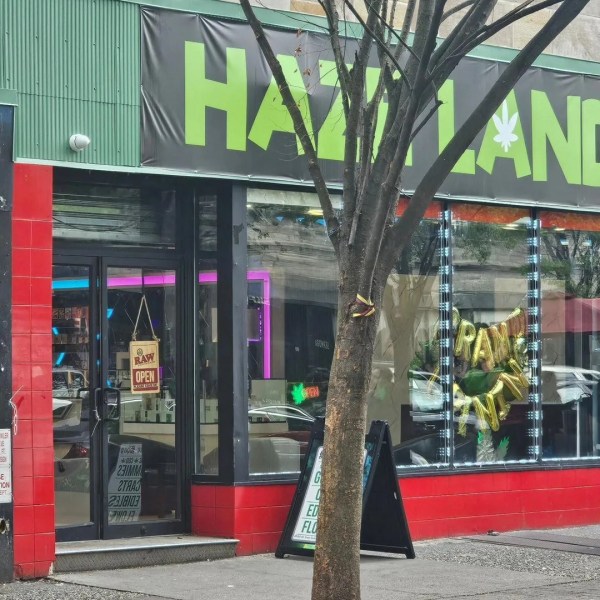
Food delivery workers rallied behind local lawmakers Wednesday as the City Council discussed a package of legislation that would legalize throttle e-bikes and e-scooters in New York City.
Supportive Council members focused their ire on the de Blasio administration, which they argued has created a class divide around cycling in the city. While the Department of Transportation has clarified its laws to allow for companies like Lime, Uber and Motivate to legally launch pedal-assist electric bicycle sharing, it has also launched a ticketing blitz against delivery workers who tend to use an illegal, throttle version.
“We cannot continue to fine these hardworking New Yorkers who every day when they interact with law enforcement are more at risk at being deported and ending up in jail,” said Brooklyn Councilman Rafael Espinal, who sponsored three bills in the package. “So we have to move forward, catch up with the times. This is not a new idea.”
Councilman Ydanis Rodriguez, the chair of the Council’s Transportation Committee, took a swipe at the administration as he gestured to delivery workers behind him, saying that the measures being discussed were “not about the big corporations. This is about the faces of those hardworking individuals.”
One of the bills would legalize throttle e-bikes with an electric motor of up to 750 watts and a speed maximum of 20 mph. Similar throttle e-bikes have been legalized in states like California and Massachusetts. The legislation would also launch a city-run program to convert illegal e-bikes into legal versions and lower fines for e-bike confiscations.
Another bill, sponsored by Bronx Councilman Fernando Cabrera, would legalize e-scooters capped at a speed of 15 mph.
“I am here today because we want to live and we want to eat,” said Jinhua Lee, 68, a former e-bike delivery worker from Manhattan, speaking through an interpreter. Lee said he retired about a year ago due to physical ailments that kept him from riding, but also from NYPD enforcement that made the job untenable. Police can confiscate e-bikes and issue $500 fines for their illegal operation.
“Most of us are law-abiding,” Lee said. “NYPD gives us a $500 fine even if we’re just waiting there for the red light.”
Clemente Rodriguez, a delivery worker from Brooklyn, said through an interpreter that circumstances of the job make it difficult to work without an e-bike.
“A while ago the police stopped me and gave me a ticket for using an electric bike — and this happens frequently,” he said. “So much so that my co-workers are afraid of the police where they work.”
Police confiscated 1,215 illegal e-bikes in 2018 and another 1,005 e-bikes the year before, according to Thomas Chan, the NYPD’s chief of transportation. At the same time, police issued 1,154 civil summonses to riders and another 167 summonses to commercial business, despite Mayor Bill de Blasio’s insistence that his e-bike crackdown would focus on businesses, not workers.
Councilman Carlos Menchaca of Brooklyn was frustrated that the Council was moving on both e-bikes and e-scooters at the same time, instead of focusing first on delivery workers.
“I am frustrated that the important efforts of the delivery worker justice organizers is being co-opted by tech companies” pushing e-scooters, Menchaca said.
Oleg Chernyavsky, the NYPD’s director of legislative affairs, said it was difficult to pass along fines to businesses because many of the workers stopped were independent contractors for third-party app services. Chernyavsky said police were targeting moving violations, not e-bikers themselves. Police also issued 1,362 moving violations to e-bike riders last year.
“There isn’t an operation necessarily targeting the possession of e-bikes,” said Chernyavsky.
“They’re actually operating in an unsafe manner,” he said of the e-bikers.
Polly Trottenberg, the Department of Transportation commissioner, reiterated concerns from de Blasio, who believes the throttle e-bikes to be too dangerous.
“The city’s concern with these throttle e-bikes has always been their unregulated, illegal nature and particularly their speed and irresponsible use by some,” she said.
While the Council believes it has the power to legalize the bikes and scooters, the city argues such authority lies with the state. That debate could be moot, though. Gov. Andrew Cuomo proposed in his budget to legalize any e-bike capped at 20 mph as well as e-scooters capped at 30 mph. That budget is due April 1.
Advocates have taken issue with several elements of Cuomo’s proposals, including new restrictions that would require all e-bike riders and e-scooter users to wear helmets and reflective clothing during nighttime hours.
“They will have the effect of discouraging the use of these small electric vehicles and that’s counterproductive to safety,” said Marco Conner, of Transportation Alternatives. “It doesn’t recognize the safety in numbers effect, which has been documented in different places in the world … there’s significant research on it that as the number of bicyclists increases, the crash rates decrease. There’s a direct correlation.”










